Heartbreaking photos show how frontline nurses treating COVID-19 patients live in the divide between home and the nightmare of the pandemic at work
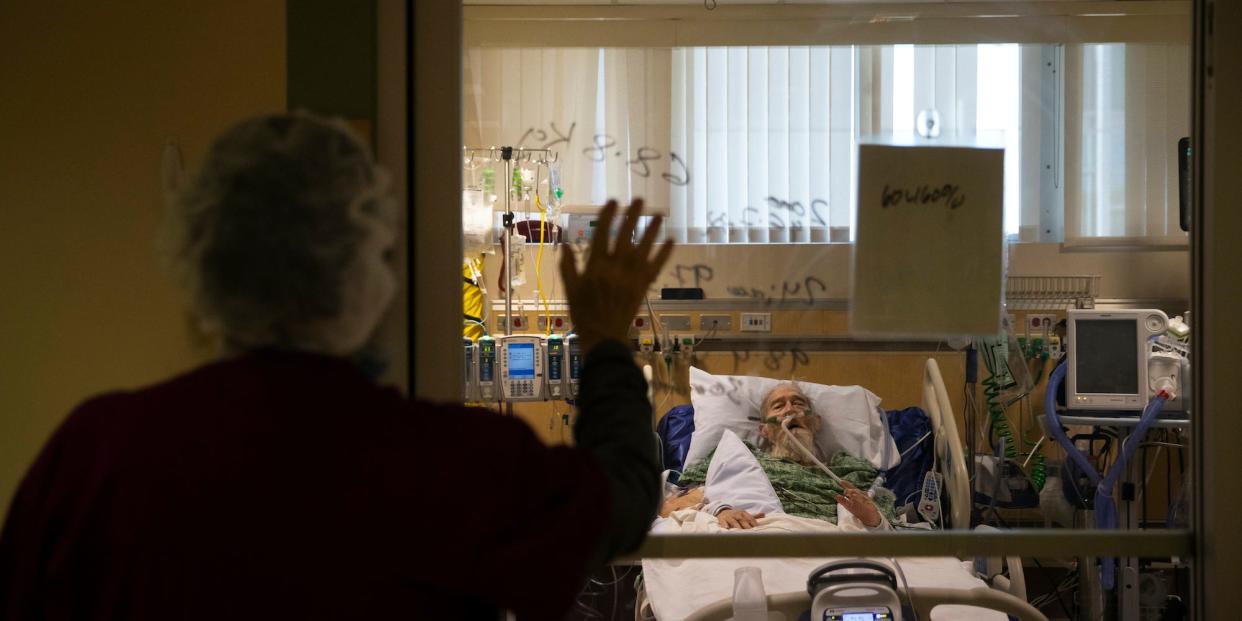
Jae C. Hong/AP Photo
Healthcare workers taking care of coronavirus patients are witnessing horrors in their hospitals and are also worried about how they could keep their own families safe.
The balance has caused some to experience emotional drainage and anxiety.
Here's what it looks like to be a coronavirus frontline health worker.
Healthcare workers on the frontlines of the coronavirus pandemic are under a lot of emotional and physical pressure while taking care of extremely ill patients, and are constantly concerned over the well-being of their own families as they work in highly contagious settings, the Associated Press reported.
Nurses in the coronavirus unit at St. Jude's Medical Center in Fullerton, California, treat patients through 12-hour shifts before going home and struggling to figure out how to not expose their families to the coronavirus.
Spencer Cushing rented his own apartment in April to protect his wife, 3-year-old James, and baby Walter from exposure to the virus.

Jae C. Hong/AP Photo
Source: AP
His wife quit her part-time job also as a nurse to take care of their kids. His three-year-old son began sleepwalking.

Jae C. Hong/AP Photo
Source: AP
After a few months, the family decided it was best for him to go home.
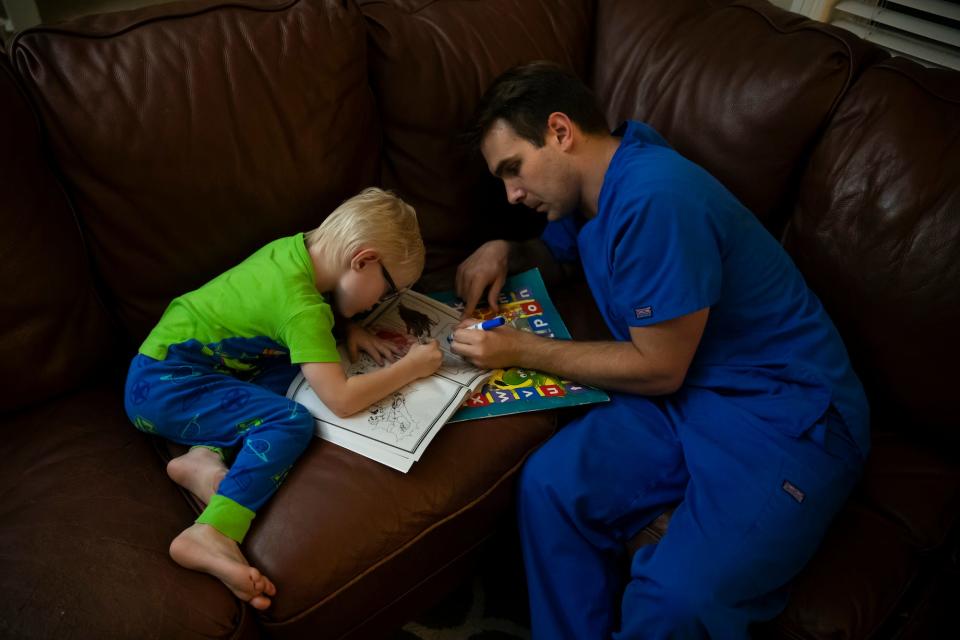
Jae C. Hong/AP Photo
"You couldn't stay away for six months," Eleanor said to her husband. "We're going to be seeing these patients for a long time."
Source: AP
Health care workers don gloves, an N95 mask, a gown, a hairnet, and a face shield while caring for coronavirus patients to protect themselves from infection of the highly contagious virus.
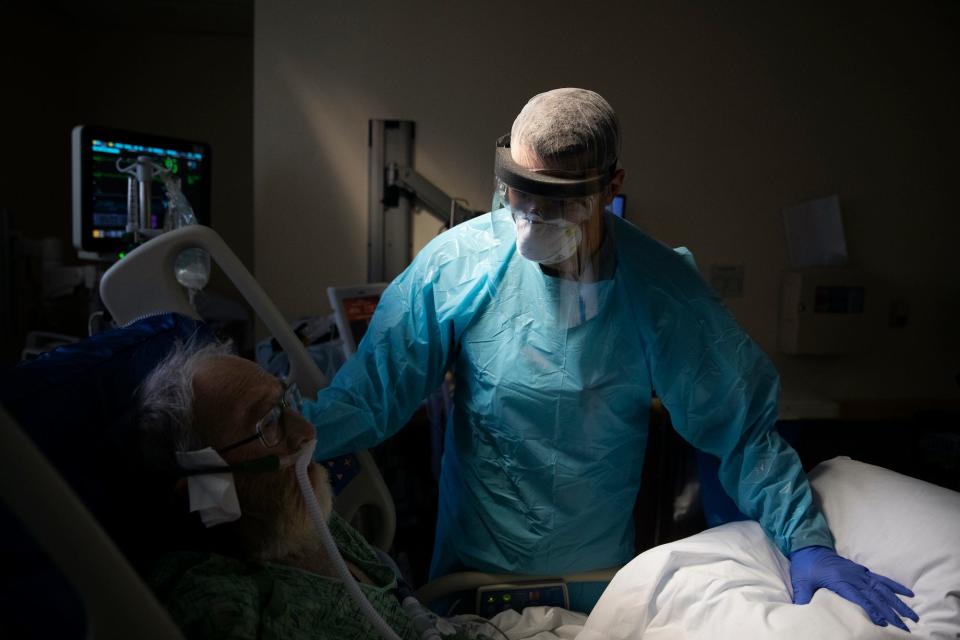
Jae C. Hong/AP Photo
Source: AP
Other healthcare workers working with coronavirus patients have also said they were extremely worried about passing the virus on to their loved ones.
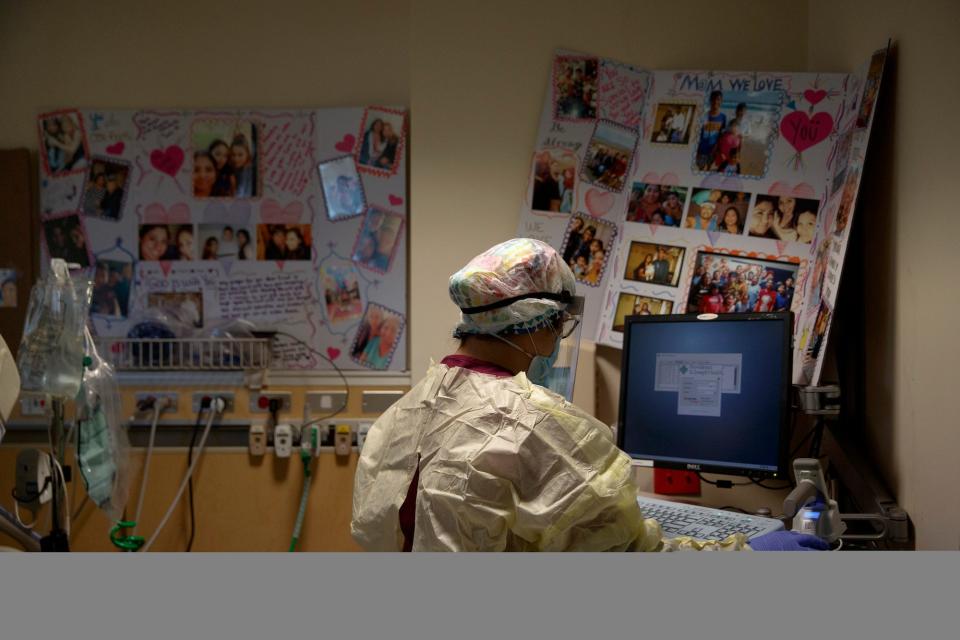
Jae C. Hong/AP Photo
Paige, a travel ER nurse, left her family in another state to work in a hospital in Southern California early in the pandemic. Her father is 86, but given her proximity to patients with COVID-19, she refused to see him, even without shelter in place orders.
"I can't be the reason my dad dies," she told Insider, explaining that she had a tough conversation with him so he knows how to protect himself.
Sarvnaz Michel took six weeks of unpaid maternity leave to spend time with her newborn in February as the pandemic was beginning to accelerate in the US.
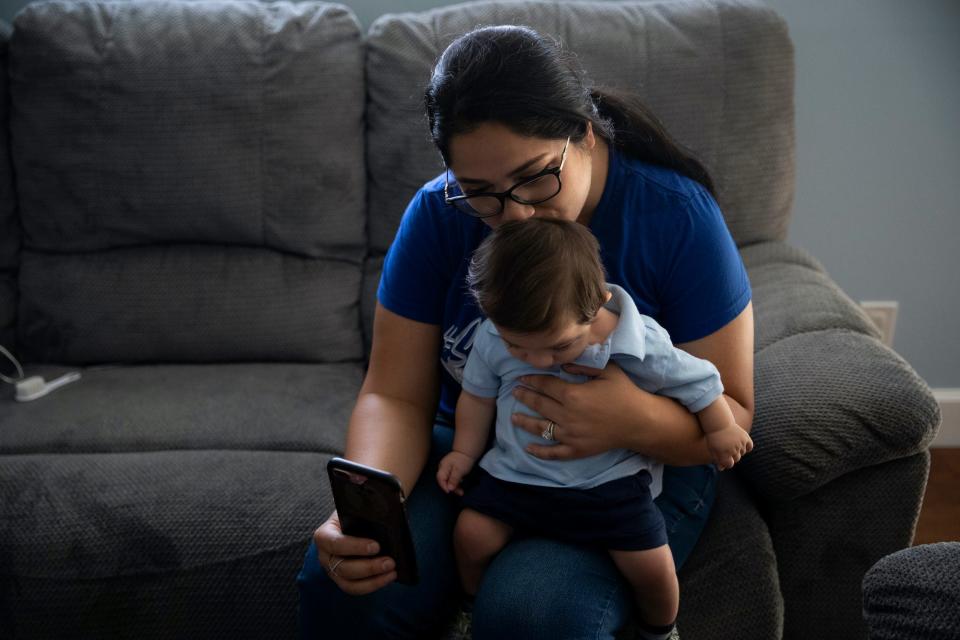
Jae C. Hong/AP Photo
"I cry almost every night," she told the AP. "If it was only about me, it would be a different story."
Source: AP
Michel's 2-year-old Leonidas knows not to hug her when she first gets home, and she's careful not to expose him to the reality of what she's experiencing.
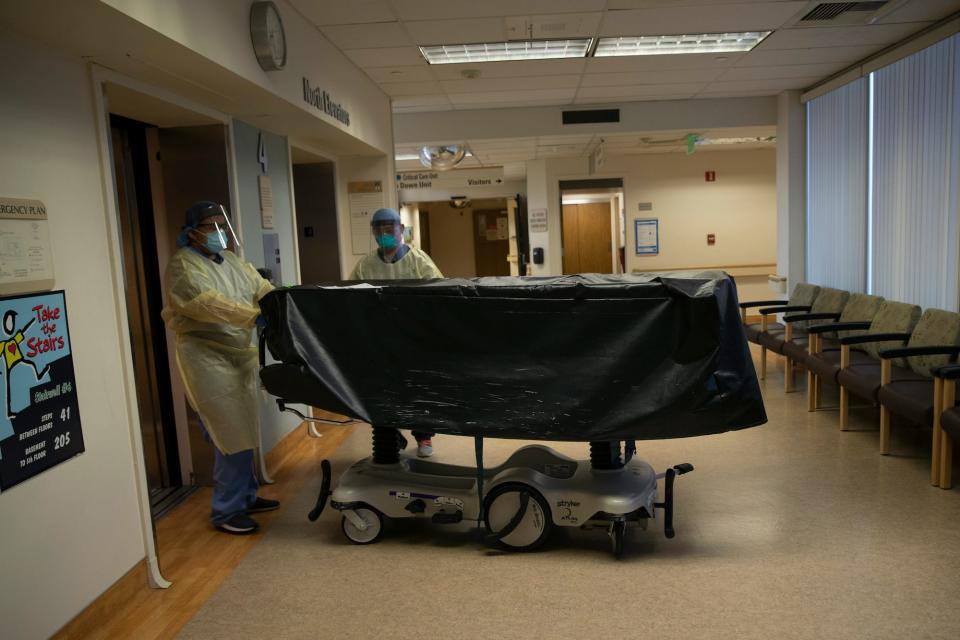
Jae C. Hong/AP Photo
Michel focuses on teaching her son to give her air hugs, and she hasn't kissed her newborn yet.
Source: AP
While Jackie Vargas, a nurse for 11 years, feels safe in the hospital, she gets anxious around her family.

Jae C. Hong/AP Photo
Vargas' kids are being taken care of by her mother-in-law, and Vargas keeps her distance when she sees them. She also sees her own mother through a glass door.
While her mother wanted her to be a nurse, she's now begging Vargas to quit for her own safety.
Source: AP
Watching patients battle the coronavirus alone is emotionally challenging.
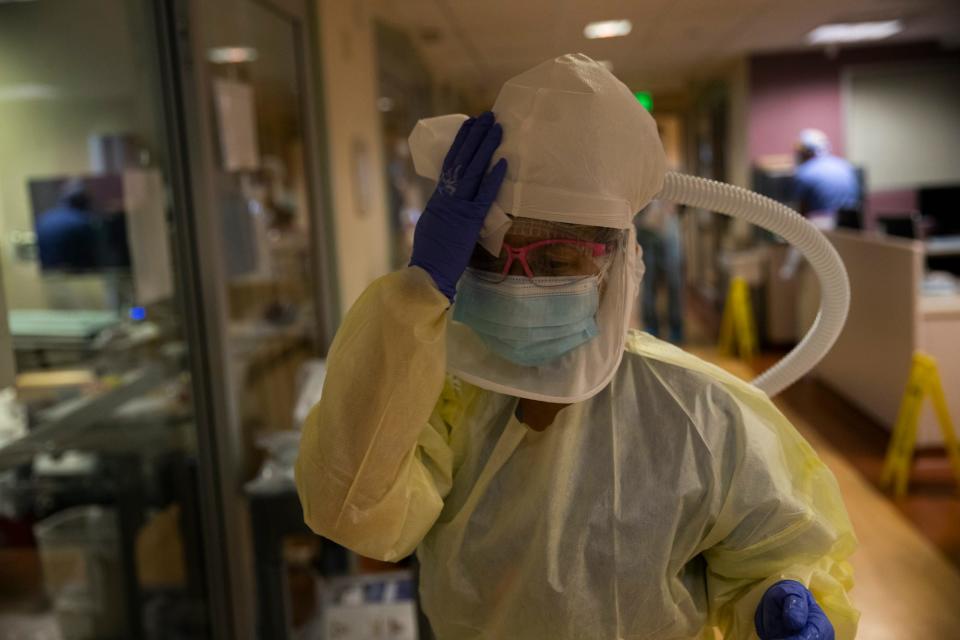
Jae C. Hong/AP Photo
Vargas finds herself emotionally drained from seeing her patients battle the coronavirus alone, without any family by their side.
"Some of the stuff gets to me, the sad stories," she said. "It takes me time to let go, let go of what I've seen."
Source: AP
Other healthcare workers previously told Insider that they were overworked.

Jae C. Hong/AP Photo
Dr. Sandra Till, a pulmonologist and critical care intensivist at Banner University Medical Center Phoenix, told Business Insider that members of her team were exhausted sometimes working 80 to 90 hours a week taking care of patients.
"The doctors and nurses and respiratory therapists are getting tired," she said. "You know, we have been working overtime, we've been working harder, and now we're being asked to work even more."
On top of providing medical care, there's also the emotional burden of caring for critically ill patients.
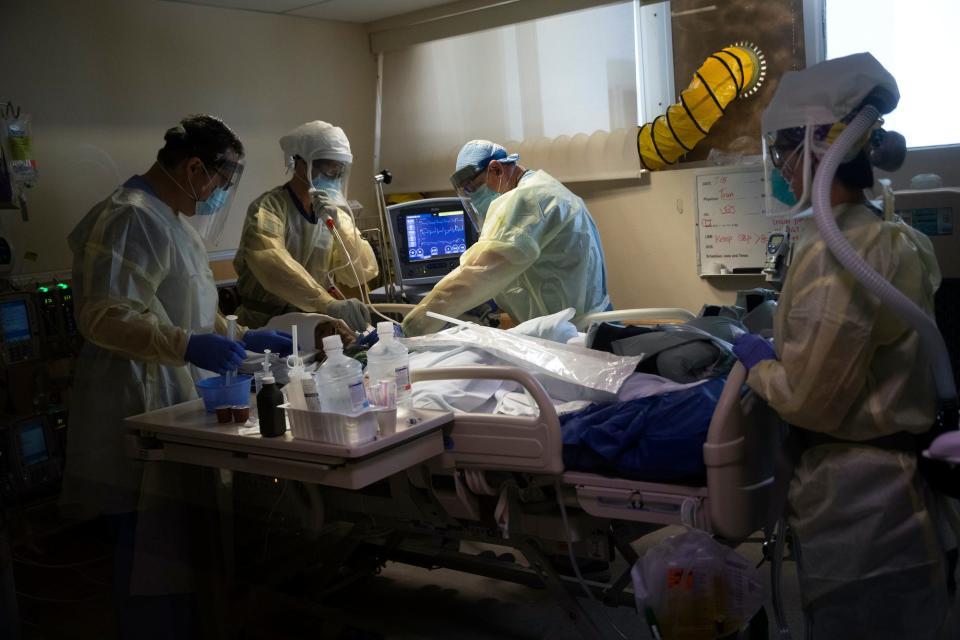
Jae C. Hong/AP Photo
"I mean, you spend this intense time at the bedside with patients who are coming in, in respiratory distress, not knowing when they'll be able to see their family again because they may or may not need to be intubated and put on a ventilator in the ICU," Dr. Bradley Dreifuss, director of rural and global emergency medicine programs at the University of Arizona College of Medicine at Tucson, previously told Business Insider.
"So you're there at the bedside, holding their hand, maybe being the last people they ever see if they're intubated and sedated and then die from COVID in the ICU," he continued. "And it's emotionally exhausting."
Michele Younkin had to watch her patient die after succumbing to the virus.

Jae C. Hong/AP Photo
Younkin "shed tears that clung to her face shield" as she let a 65-year-old patient off of the machine that was supporting his breathing.
"Times like these, you will remember this," Younkin's grandmother, a nurse during the polio epidemic, later told her. "You don't forget them."
Source: AP
Younkin would comfort the man's wife as she saw him for the last time.

Jae C. Hong/AP Photo
Source: AP
Younkin juggles the decisions she has to make as a mom with the pandemic, like whether its safe for her to breastfeed.
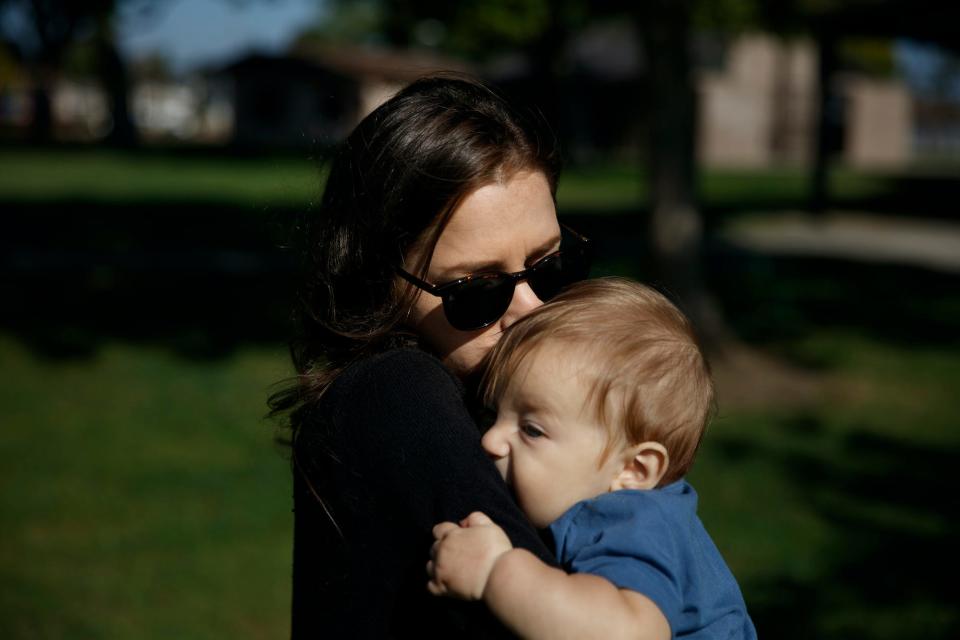
Jae C. Hong/AP Photo
She told the AP that she obsesses over her actions.
"Did I put my gear on the right way, did I take it off the right way, did I touch something wrong accidentally?"
Source: AP
She's concerned that she could infect her family and urged her husband not to go to her funeral if she died.
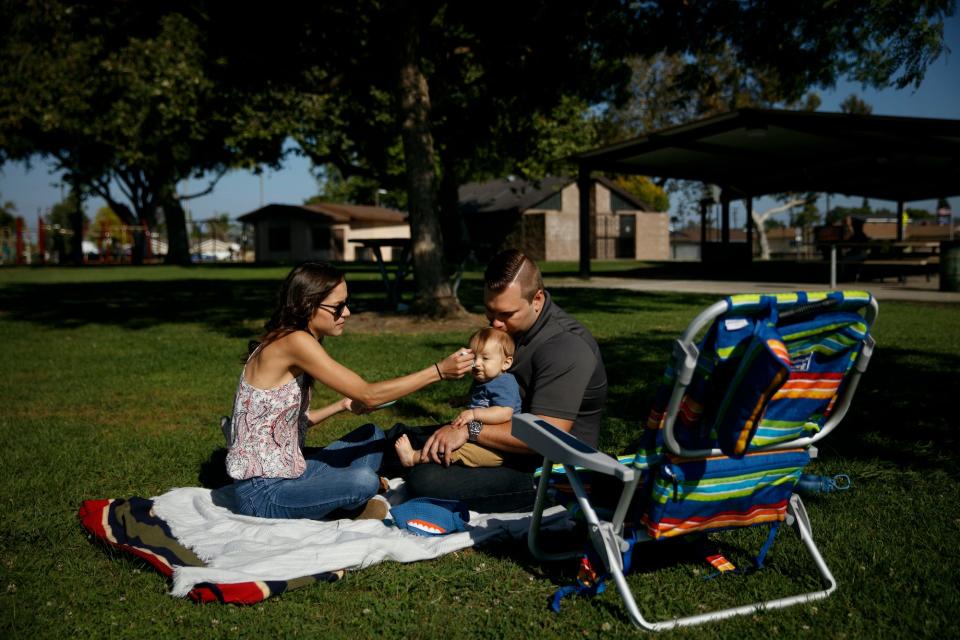
Jae C. Hong/AP Photo
"If I were to die, don't come," Younkin told her husband emphatically. "Don't risk yourselves."
Source: AP
Read the original article on Business Insider

